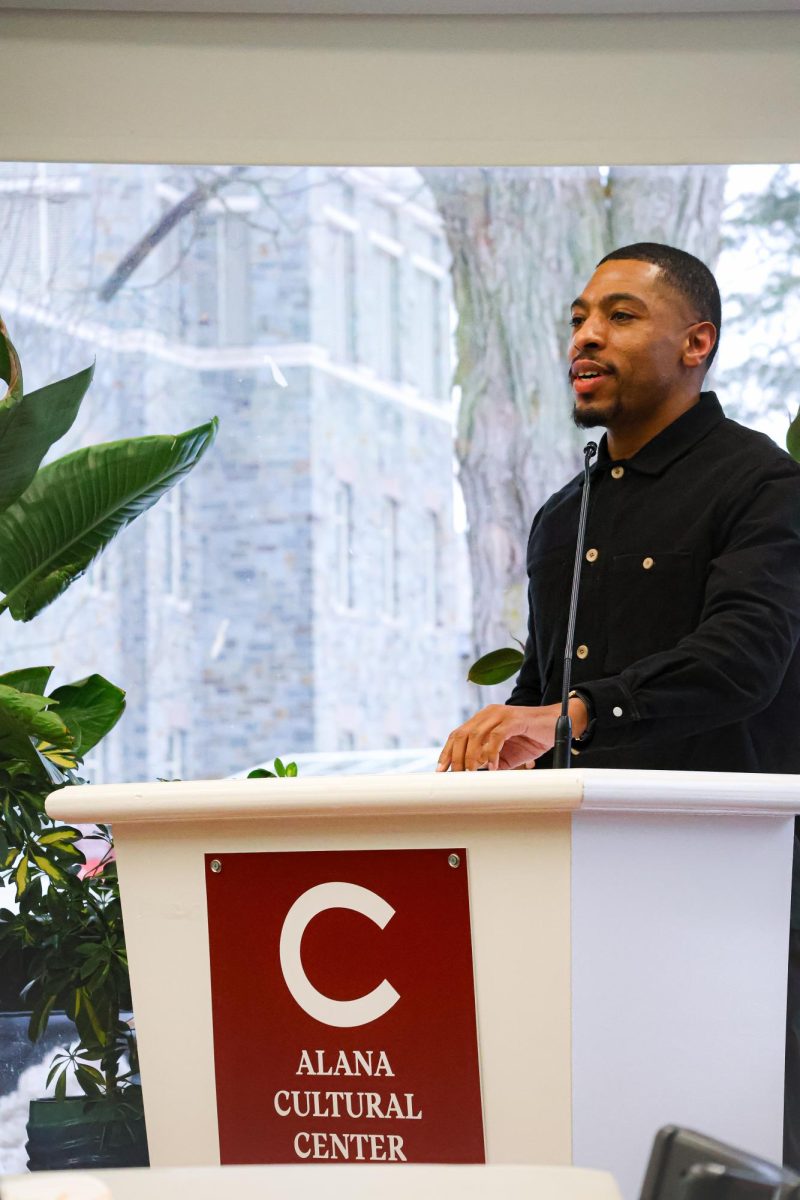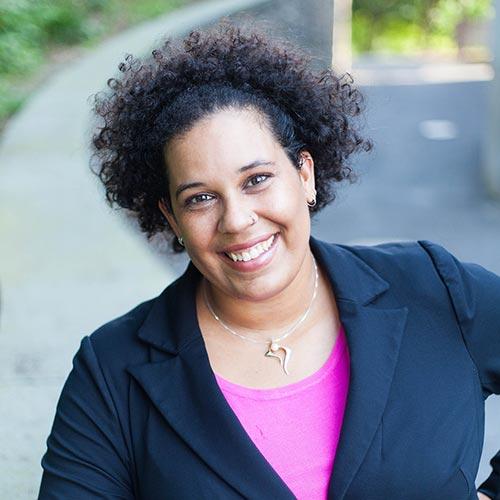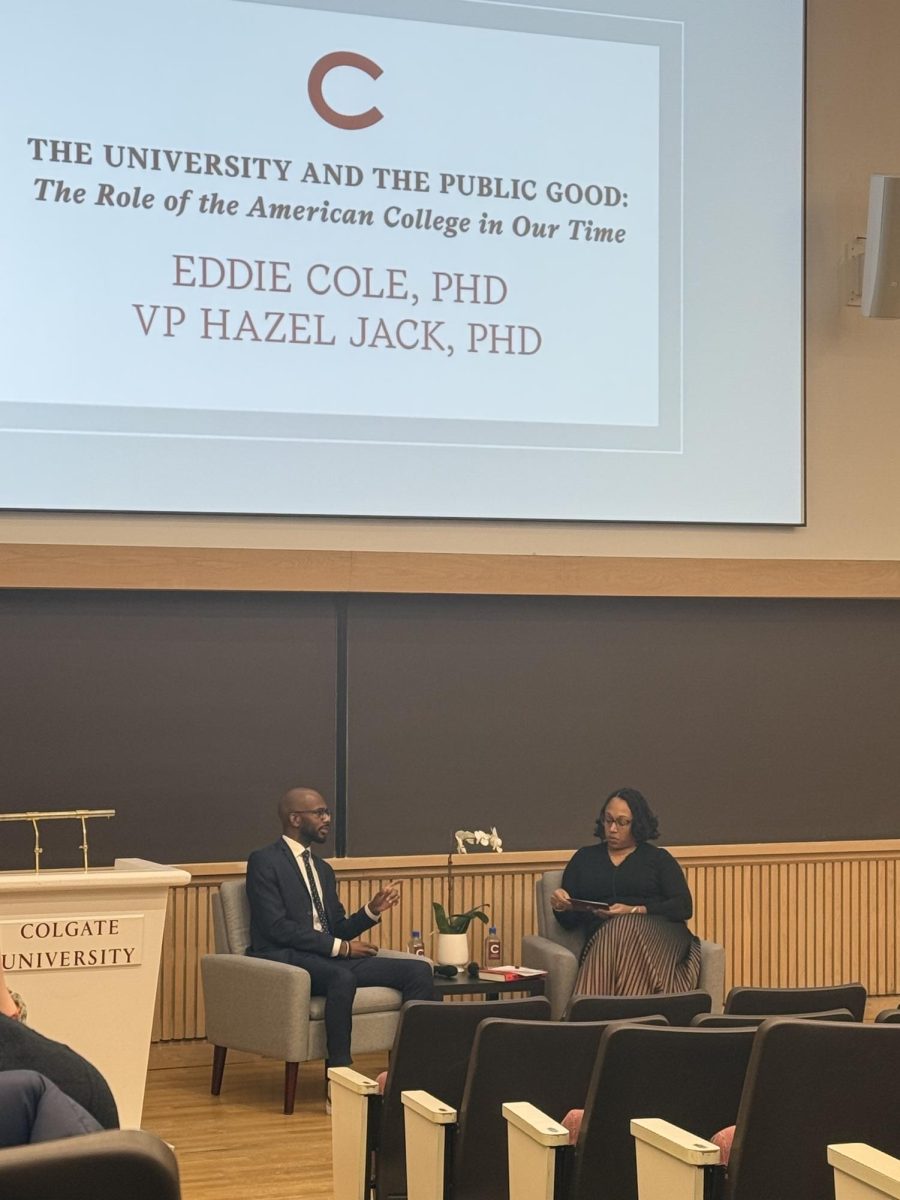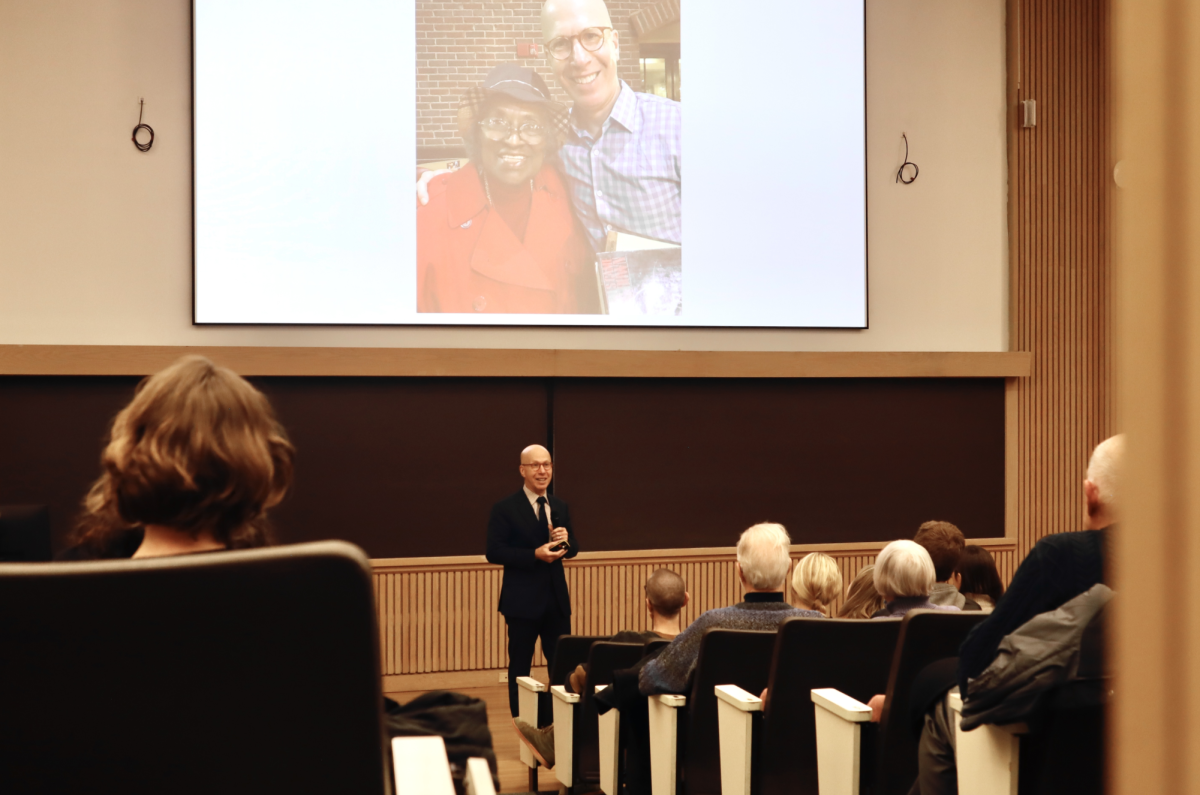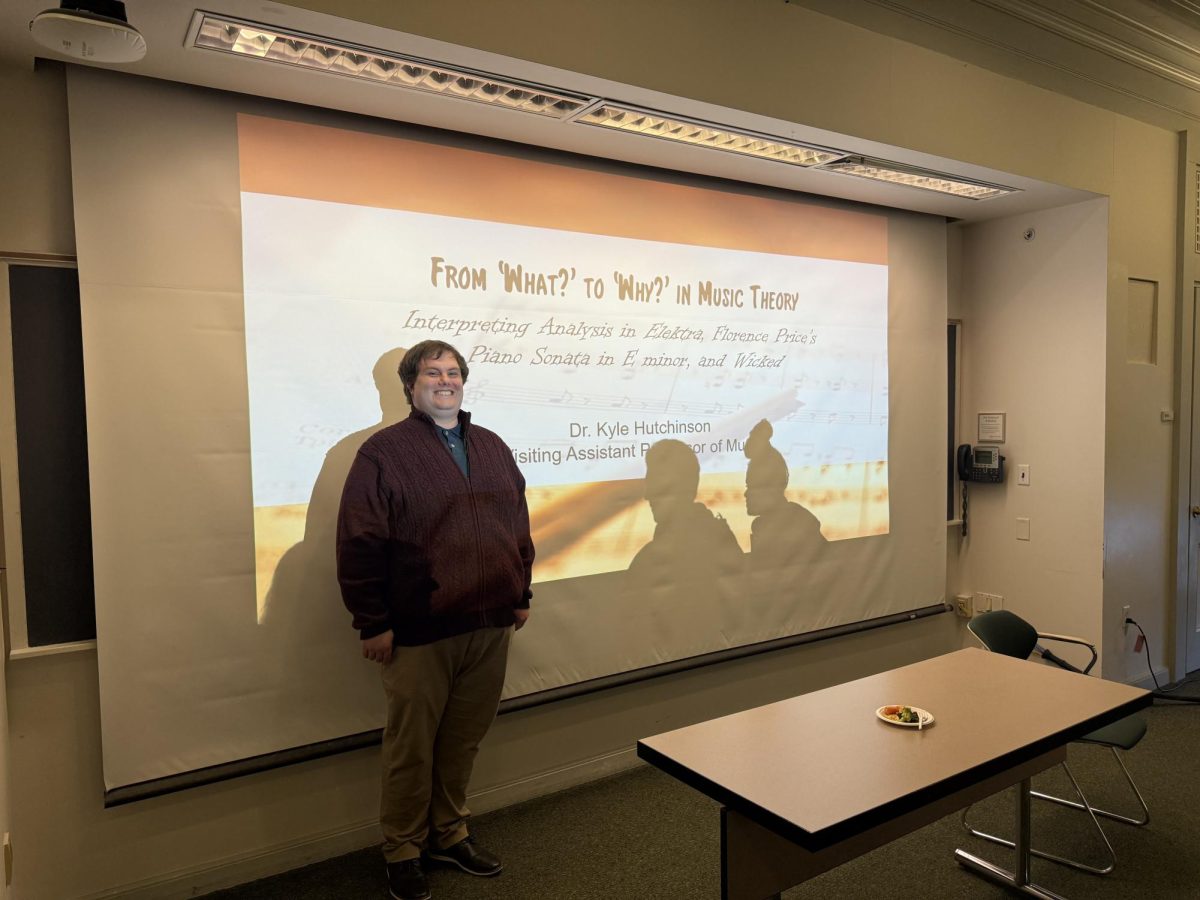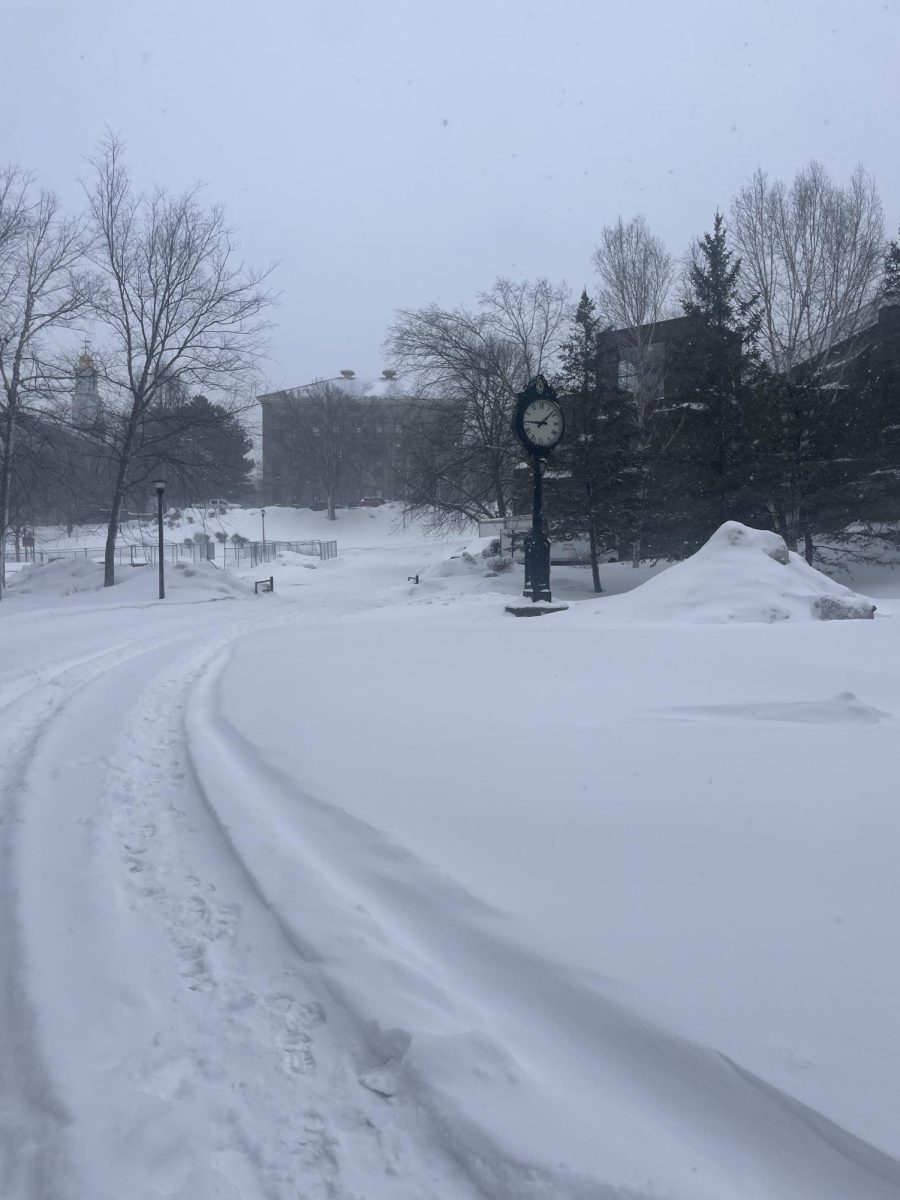Colgate University closed out its 2024 Road to the White House series by welcoming New York Times columnist Maureen Dowd and chief Washington correspondent for the Times Carl Hulse to the Colgate Memorial Chapel on Sept. 24. The two journalists participated in a discussion moderated by Colgate University President Brian W. Casey where they shared their thoughts on covering the current political landscape and how the world of journalism has changed with the introduction of social media.
Hulse emphasized the importance of journalistic integrity at the outset of the discussion, especially in an era when every writer is at the mercy of diligent social media fact-checkers.
“My driving factor has always been to get the story correct. You’ve got to be right,” Hulse said. “And there’s so much scrutiny on The Times, and now everyone has as many avenues to tell you [that] you were wrong somewhere on social media.”
Sharing his username on the social platform X, Hulse playfully encouraged students in the audience to let him know online if any of his facts were wrong.
Hulse also spoke on the reliability of The New York Times.
“The stories are important, but it goes through layers of editors that fact check and that’s the Times culture,” Hulse said.
Both Dowd and Hulse commented on social media’s impact on journalism and the challenges that come with the increased connectivity of modern times.
“When social media came more along, opinions were flying […] Social media was completely out there, so psychologically, it was a whole new level of pressure. But I think it also kind of pushed us to be more out there, and that’s where you have to really be careful, because there’s still The New York Times. We’re not going to be you,” Dowd said.
This sentiment was echoed by Hulse, who touched on journalism’s rapid innovation since the introduction of the internet and the heightened scrutiny they endured via platforms like X and Instagram.
On partisanship in the press, both guest speakers disagreed with the assertion that The New York Times was a partisan publication in response to Casey asking if The New York Times was MSNBC in print.
“Definitely not,” Hulse said. “I think we still do a pretty good job of playing it straight.”
“People were unhappy that we were even printing [former President Trump’s] tweets,” Dowd said.
The two journalists agreed that the tweets’ political significance made them newsworthy.
“That’s his policy. We were basically considering those official White House statements, basically because they were,” Hulse said.
The two spoke candidly about how Trump had changed political reporting, from his tweets to his conduct in the White House.
“He didn’t come into your head as future president,” Dowd said.
Hulse proceeded to comment on Trump’s history of flipping on policy, mentioning that his views had proven to be malleable.
“Trump’s policy is Trump. He does what’s best for himself,” Hulse said.
Trump was not the only recipient of criticism in the discussion on Tuesday. Both writers had insight on Vice President Kamala Harris’ campaign strategy, as well as thoughts on President Joe Biden’s exit from the election.
“Nobody wants to give up power,” Dowd said about Biden. “He’s furious at everyone.”
“He was going to drag everyone down,” Hulse said.
This souring on Biden’s campaign led to some serious broken relationships for Biden, according to Dowd and Hulse, including his friendship with Speaker Emerita Nancy Pelosi.
“Biden even now has an enemies list. Even now he thinks he should be in the race,” Dowd said. “[Pelosi] was trying to very delicately surround him with this silky web and ease him out without losing his friendship, and she couldn’t. She lost his friendship, and he’s furious at her.”
On the topic of Harris’ campaign, Dowd had some concerns about the public perception of the Vice President’s policies.
“I’m just getting a little uneasy that she is not talking about the economy,” Dowd said. “She’s not talking to tough journalists.”
Hulse mentioned that this lack of participation with the press on Harris’ part comes from her widely-criticized interview with Lester Holt three years ago on the topic of immigration.
“It left her with a fear of giving interviews,” Hulse said. “She should have been ready for those questions.”
Students were able to ask questions of the two reporters, with one student asking about the guest essay published in The New York Times by George Clooney, which aided in pushing Biden out of the race, and another student asking for their advice on how to succeed in the world of journalism.
Senior Simon Khairallah attended the lecture and appreciated the opportunity to hear the writers’ first-hand insights into the field of political journalism.
“I really enjoyed learning about Dowd’s experience as an opinion columnist and Hulse’s understanding of reporting on Capitol Hill,” Khairallah said. “Their insider knowledge about the 2024 election cycle was really interesting.”
After the Q&A, Casey asked Dowd and Hulse for their November predictions.
“In the end it probably will kick in one direction,” Hulse said. “Everything is super tight.”
Hulse later mentioned that it doesn’t usually stay as tight as polls currently predict. In a final note on election strategy, Dowd made a closing comment on the Republican nominee.
“Trump will go as low as he thinks he needs to,” Dowd said.
Casey’s final question was the same one posed to Karl Rove a week prior: Will democracy hold through this election?
“There’s no guarantee in democracy, and I think people need to realize that,” Hulse said.


